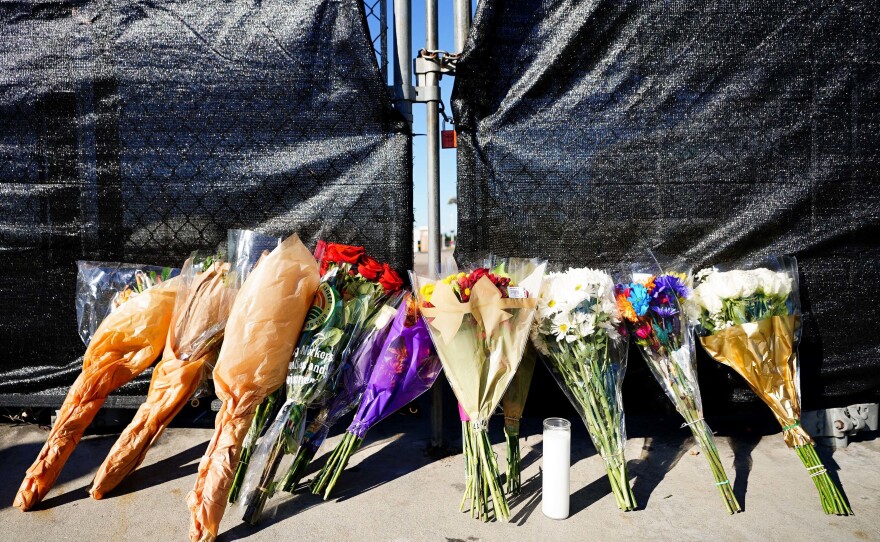At least eight people are dead and many more injured after a crowd rushed the stage at rapper Travis Scott's music festival Astroworld in Houston.
Authorities are investigating the cause of the "mass casualty event," which unfolded at an outdoor performance by Scott at the festival on Friday night.
Houston Mayor Sylvester Turner called for law enforcement, festival organizer Live Nation and the venue to explain "how the event got out of control leading to the deaths and injuries of several attendees."
The deaths at Astroworld Festival call to mind other rare but traumatic incidents at concerts and festivals in which crowding or other factors contributed to dangerous conditions for some attendees.
November 2021: ABBA tribute concert
The Astroworld incident comes just days after two people died at a music event in Sweden.
As audiences waited in a concert hall near Stockholm for an ABBA tribute concert to start on Tuesday night, an elderly man either jumped or fell down seven floors and landed on two people below. He and one of the people he hit died, while the other was taken to a hospital with injuries.
The actual band, which on Friday released its first new album in four decades, briefly delayed promotion of its highly anticipated comeback tour in light of the tragedy.
December 2016: Ghost Ship Fire
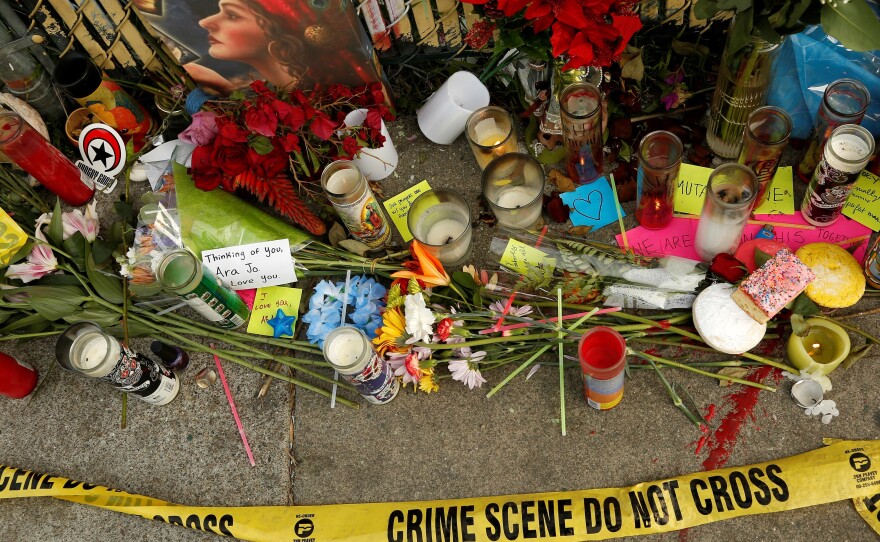
On Dec. 2, 2016 a fire broke out at an underground electronic music party in an Oakland, Calif., warehouse-turned-artist collective known as the Ghost Ship. The fire — the source of which is still unknown — trapped people on a second floor, killing 36.
Officials later found that the building had no smoke detectors or sprinklers, and contained numerous extension cords and large quantities of flammable materials. Derick Almena, its primary leaseholder, was sentenced to 12 years in prison earlier this year — though will serve only one-and-a-half years of in-home confinement, wearing an ankle monitor.
The city of Oakland reached a $32.7 million settlement with fire victims last year. Of that amount, $23.5 million went to families of people who died, and $9.2 million went to Sam Maxwell, who was the last person to escape the fire and suffered life-changing injuries.
August 2011: Indiana State Fair stage collapse
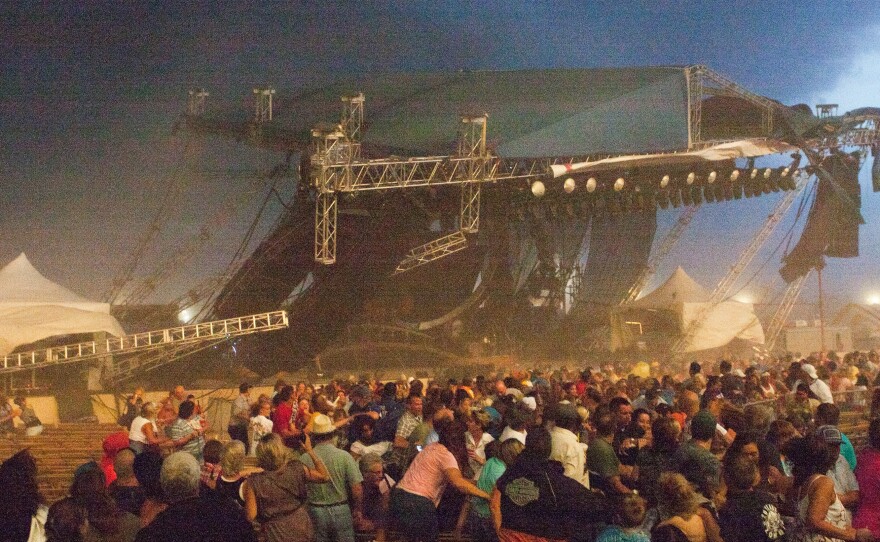
Seven people died and 58 were injured when strong winds knocked metal scaffolding and stage equipment into a packed crowd at the Indiana State Fair in Indianapolis, where audiences had been awaiting an outdoor performance by the country duo Sugarland.
A storm with winds estimated between 60 and 70 miles per hour blew through the fairground, collapsing the stage just minutes after organizers urged the crowd to seek shelter. The disaster raised questions about safety inspections of outdoor stages and whether authorities should have canceled the show sooner, as NPR reported at the time. It also left a lasting impact on survivors and victims' families.
Two investigative reports later found that the scaffolding was not up to code and that the Indiana State Fair Commission did not have adequate emergency plans in place. Lawyers representing injured survivors and victims' family members reached a $50 million settlement with 19 companies in 2014.
July 2010: Love Parade stampede
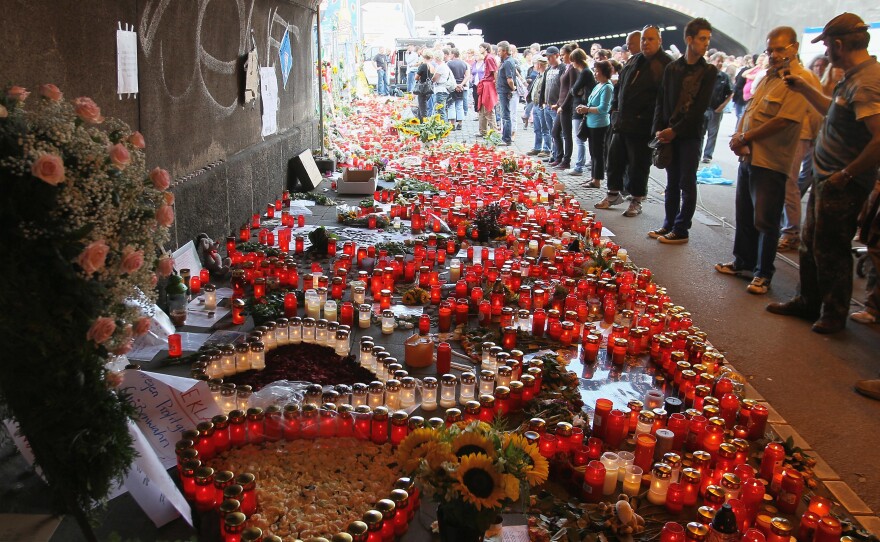
A stampede killed 21 people and injured more than 500 at the 2010 Love Parade, a techno dance music festival in the western German town of Duisburg.
After police closed the festival grounds due to overcrowding, thousands of attendees converged in a single tunnel that served as its only entrance and exit. Police tried to use loudspeakers to tell people entering the tunnel to turn around and leave in the other direction.
"Something sparked a panic in the tunnel and chaos ensued, crushing many of the victims to death," NPR reported at the time. City officials did not evacuate the site for fear of fueling more panic, and many unaware festival-goers continued partying for hours.
In the aftermath, critics and prosecutors accused police and event organizers of failing to properly prepare for such a large event in such a small space. A decade of legal challenges ensued, with a German court ending the manslaughter trial of three techno-music promoters in May 2020 without a verdict.
And the Love Parade — which originated as an impromptu party in Berlin in 1989 — was immediately canceled forever.
February 2003: The Station nightclub fire
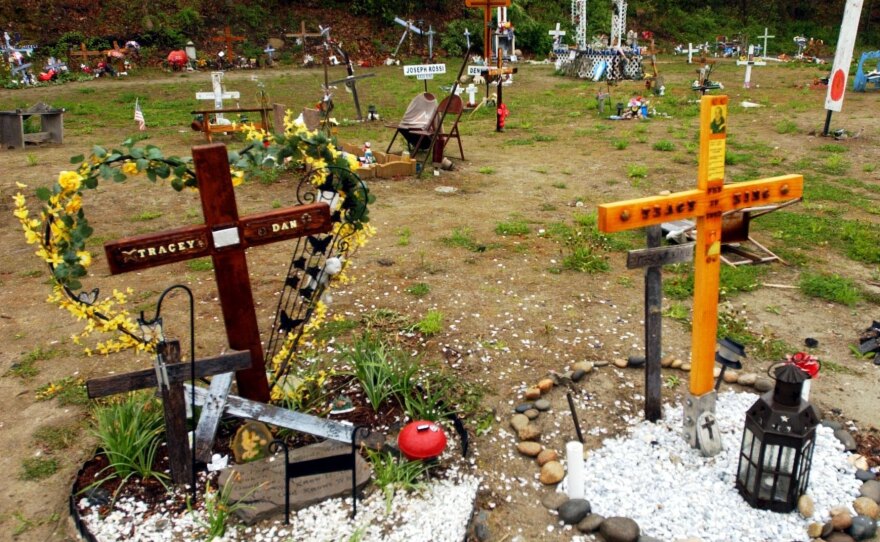
The rock band Great White was playing a set at The Station nightclub in West Warwick, R.I. when their tour manager set off fireworks, which set the stage's soundproofing foam ablaze. The building was quickly engulfed in flames, and 100 people died and more than 200 were injured.
Survivor Robert Riffe spoke to NPR about his experience on the first anniversary of the fire. He described the pyrotechnics setting the foam on fire within the first few seconds of the show, as the band continued playing and many audience members thought it was part of the performance. As he and his friend made their way out, the mood in the crowd changed to one of panic.
"We started heading for the door and it was pretty calm at first ... and then I remember hearing somebody yell 'Fire, fire, get out of here' and I saw somebody throw a cup of water," Riffe recalled. "And that's when everybody started trying to flood out of the place at once, and the door just got jammed, people just pushing and shoving. You pretty much had no choice but to get stuck there in the door."
The club's two owners — brothers Jeff and Michael Derderian — and the band's tour manager — Daniel Biechele — were each charged with 200 counts of involuntary manslaughter. They each accepted plea deals, and Michael Derderian and Biechele went to prison. The Derderians shared their side of the story in a televised interview with CBS News just last month.
Efforts to establish a memorial on the site of the club took more than a decade. Station Fire Memorial Park, a 1-acre park with gardens and granite monuments, was dedicated to the victims of the fire in 2017.
June 2000: Pearl Jam Roskilde Festival stampede
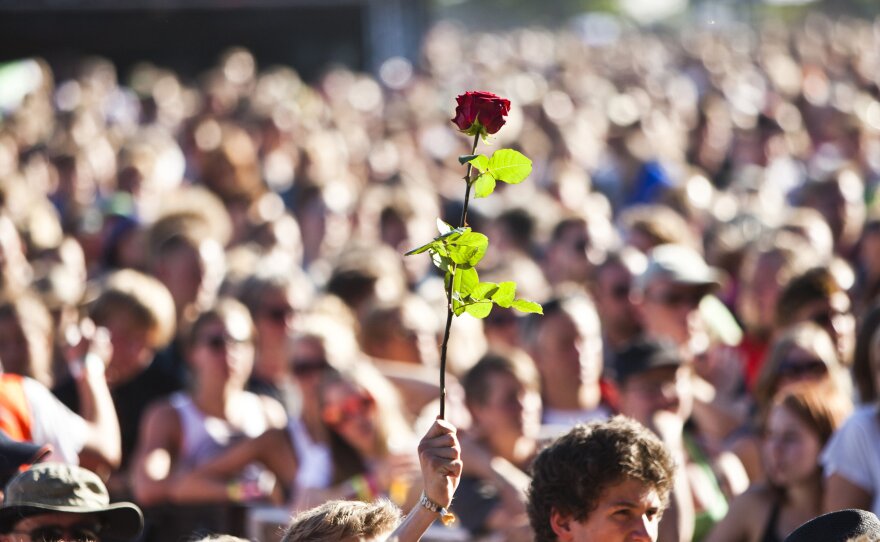
Nine people were trampled to death in a mosh pit during Pearl Jam's performance at the Roskilde Festival in Denmark in 2000.
Pearl Jam headlined the main stage of that year's festival after days of rain, which had made the ground muddy and slippery. Fans rushed towards the band as it took the stage, setting off a stampede. Pearl Jam canceled the rest of their European tour.
In the decades since, Pearl Jam members say they have met some of the victims' families and even become close with some of them. The band released a statement in June 2020, on the stampede's 20th anniversary, offering their apologies and condolences to the victims, their loved ones and witnesses.
"Everyone failed to live up to what was needed in those hours before and in those days following the tragedy," read the statement, written by guitarist Stone Gossard on the band's behalf. "The festival, the media, us included. We retreated and became angry after many reports implied PJ was responsible. Our words were nothing to help at that point. We hid and hoped that it wasn't our fault. We have been trying our best to unhide ever since."
December 1979: The Who in Cincinnati
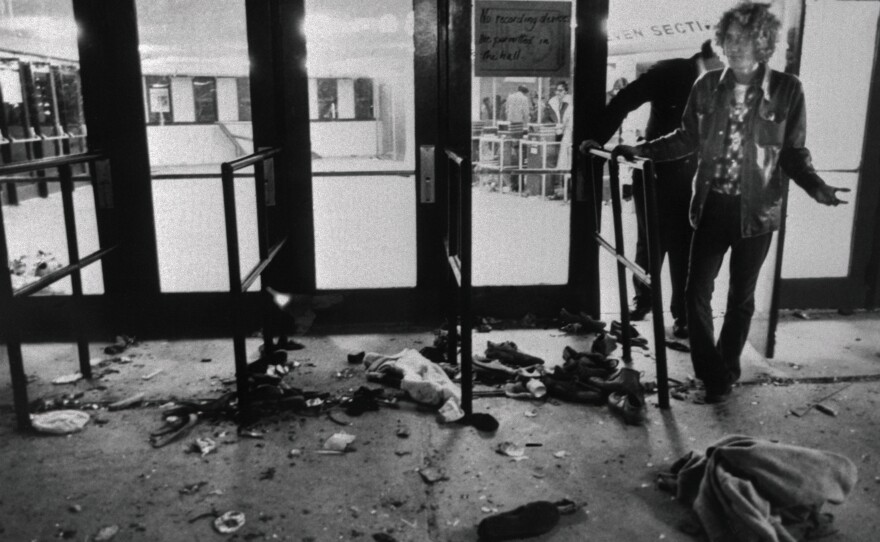
Eleven people died in a stampede to see The Who in concert at Cincinnati's Riverfront Coliseum on the night of Dec. 3, 1979. Hundreds of fans had gathered outside the plaza early for first-come, first-serve festival seating. When only a few doors were opened, the crowd swelled and pushed, creating a fatal crush. (The tragedy prompted changes in crowd control, with the city quickly outlawing festival seating.)
"We held off by, you know, just holding ourselves up against doors, against the bars. We did anything we could do just to go ahead and protect ourselves because, you know, our feet were off the ground at points," survivor John Hutchins, who was 17 at the time, told NPR in 2019.
Four decades later, The Who announced plans to hold their first Cincinnati concert since that tragic day. Their show was originally planned for April 2020, but postponed because of the coronavirus pandemic.
May 1977: The Beverly Hills Supper Club Fire
A packed dinner crowd had been waiting for singer John Davidson to take the stage at the Beverly Hills Supper Club in Southgate, Ky., when a fire broke out, killing 165 people and injuring many others.
The site of the nightclub — and specifically, the former Cabaret Room — has been home to memorials ever since. The Cincinnati Enquirer reported in August that construction would soon start on an assisted living center, apartments and homes on the property.
May 1974: David Cassidy's White City Stadium concert
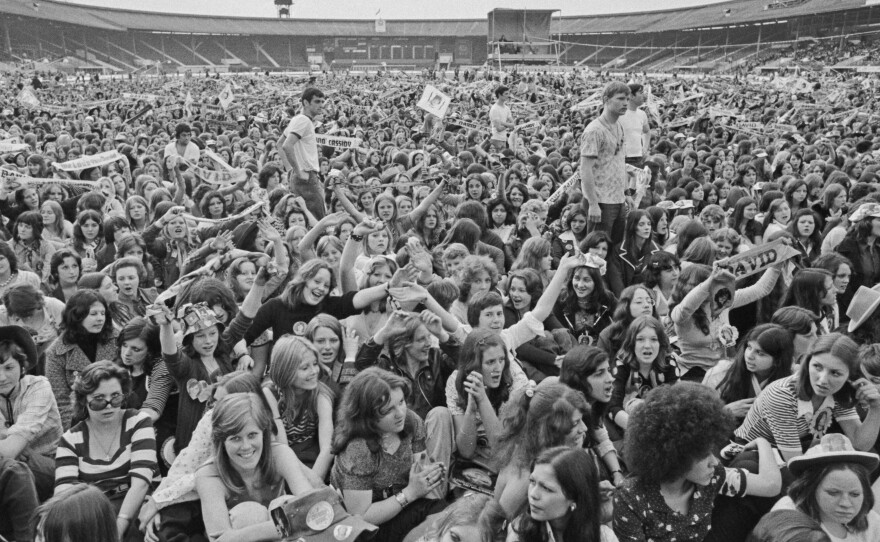
The late singer and teenage heartthrob David Cassidy was performing at the White City Stadium in West London when the crowd surged toward the stage.
The New York Times reported at the time that the crush injured more than 700 fans and killed one, 14-year-old Bernadette Whelan who died after sustaining a heart attack and entering a coma.
Whelan's family said they did not hold Cassidy responsible, saying publicly that "Bernadette would not have liked us to blame him."
December 1969: Rolling Stones at Altamont
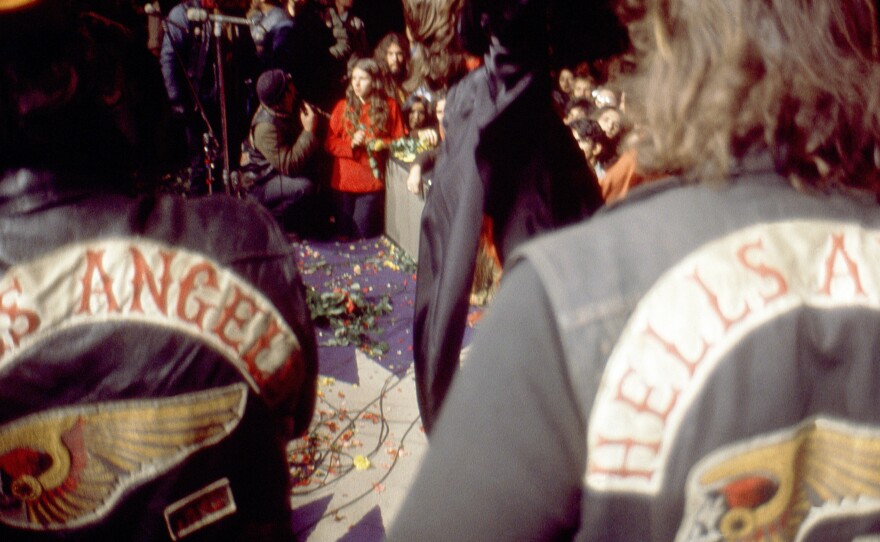
Dec. 6, 1969 is an infamous day in rock and roll history. That's when the Rolling Stones headlined a free concert at the Altamont Speedway in Northern California, in a show many hoped would be the West Coast equivalent of Woodstock.
But much less funding and planning went into this event; for example, several dozen members of the Hells Angels Motorcycle Club were tasked with providing security, and tensions between the bikers, bands and the crowd escalated throughout the day.
A chaotic scene played out in front of the stage during the Stones' set, where 18-year old Meredith Hunter brandished a gun and 21-year-old Hells Angel member Alan Passaro fatally stabbed him — just 20 feet away from where Mick Jagger was performing "Under My Thumb." Passaro was later acquitted on grounds of self-defense.
Copyright 2021 NPR. To see more, visit https://www.npr.org. 9(MDAzMjM2NDYzMDEyMzc1Njk5NjAxNzY3OQ001))


